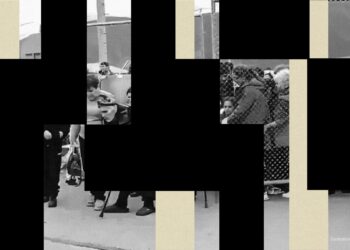
Listen to the article.
On September 23, 2021, Azerbaijan instituted proceedings against Armenia under the International Convention on the Elimination of All Forms of Racial Discrimination (CERD). This move appeared to be a calculated attempt by Azerbaijan to counterbalance Armenia’s claims before the International Court of Justice (ICJ) and to exert additional pressure on the judiciary. By initiating these proceedings, Azerbaijan sought to create a false equivalency between Armenia’s well-founded claims rooted in substantial evidence and its own claims, arguably contrived to present a formal legal case against Armenia.
Azerbaijan relied on Article 36(1) of the ICJ Statute and Article 22 of CERD as the basis for the Court’s jurisdiction, given that Armenia and Azerbaijan are parties to the Convention. However, on April 21, 2023, Armenia raised three preliminary objections challenging the Court’s jurisdiction and the admissibility of Azerbaijan’s application. In its judgment on November 12, 2024, the ICJ upheld Armenia’s first and third preliminary objections, effectively rejecting significant portions of Azerbaijan’s claims, while dismissing the second objection.
This decision by the ICJ underscores the disparity between the two parties’ positions: Armenia’s claims are deeply anchored in international legal principles and supported by factual evidence, whereas Azerbaijan’s claims appear to lack the substantive legal foundation necessary for successful litigation. This outcome highlights the challenges of using international judicial mechanisms as a tool for political counter-pressure rather than genuine legal redress.
Background of the Case Azerbaijan v. Armenia
Azerbaijan’s claims in its application to the ICJ under Article 22 of CERD center on allegations of Armenia’s violations of multiple CERD provisions. The claims include:
- Ethnic Cleansing and Cultural Erasure: Azerbaijan accuses Armenia of ethnically cleansing Azerbaijanis, unlawfully killing, violently expelling, torturing, and mistreating hundreds of thousands of people. It also alleges widespread looting and destruction of Azerbaijani towns, cultural monuments, and heritage in the formerly occupied territories.
- Violation of the ICJ’s Provisional Measures: Armenia is accused of failing to prevent the incitement of racial hatred by ethno-nationalist groups operating within its territory, in breach of the ICJ’s December 7, 2021, Order on Provisional Measures.
- Obligations to Cease Discriminatory Actions: Azerbaijan demands Armenia cease all discriminatory acts, ensure non-repetition, and publicly condemn acts inconsistent with CERD.
- Promotion of Tolerance: Armenia is requested to implement educational and cultural measures to combat racial prejudices and foster understanding between Armenians and Azerbaijanis.
- Acknowledgement and Apology: Azerbaijan demands that Armenia take responsibility for CERD violations, publicly apologize, and condemn racial discrimination against Azerbaijanis.
- Disclosure of Information on Missing Persons: Armenia is asked to provide information on missing Azerbaijanis and the locations of any undisclosed mass grave sites.
- Restoration of Property and Return of Displaced Persons: Azerbaijan calls for the restoration of movable and immovable property and cultural objects taken in violation of CERD, recognition of Azerbaijani heritage, and facilitation of the return of Azerbaijani refugees and internally displaced persons to their homes.
- Compensation: Armenia is requested to compensate Azerbaijan for material and non-material damages caused by the alleged violations, with quantification to be determined in a separate phase of the proceedings.
- Further Relief: Based on the preceding claims, Azerbaijan seeks additional or more specific relief to be addressed in subsequent phases.
Armenia’s First Preliminary Objection: Temporal Scope
The ICJ sided with Armenia in its challenge to Azerbaijan’s claims about events that occurred before 1996 under CERD.
Armenia argued that since Azerbaijan had not joined CERD until September 1996, the ICJ couldn’t hear cases about incidents between July 23, 1993 and September 15, 1996. Treaties, Armenia pointed out, typically don’t apply retroactively, and legal obligations only arise once both parties are bound by the agreement.
The ICJ agreed, emphasizing that international treaties like CERD can’t be used to hold states accountable for actions taken before the treaty came into force between them. While CERD establishes broad obligations to all member states, these obligations didn’t apply to Azerbaijan until it formally joined.
Azerbaijan tried to argue that events starting before 1996 but continuing afterward should be considered, but the ICJ rejected this reasoning. It ruled that only incidents after September 15, 1996, fall within its jurisdiction.
This decision reinforces a core principle of international law: states can only be judged on obligations they have explicitly agreed to, ensuring fairness and clarity in global legal disputes. For Armenia, it’s a significant legal win that narrows the scope of Azerbaijan’s claims in this ongoing case.
Armenia’s Second Preliminary Objection: Landmines and Booby Traps Scope
Armenia argued that the ICJ lacked subject matter jurisdiction over Azerbaijan’s claims regarding the alleged placement of landmines and booby traps.
The Court noted that Azerbaijan presented the placement of landmines and booby traps as evidence supporting its broader claim that Armenia used military means as part of an ethnic cleansing policy. The ICJ found that Armenia’s objection lacked a clear basis since the claims were not about landmines themselves but their connection to ethnic cleansing allegations. The Court ruled that it would examine the arguments and evidence related to landmines during the merits stage.
The Court rejected Armenia’s second preliminary objection, allowing Azerbaijan to present arguments and evidence related to landmines. This decision does not prejudge whether Azerbaijan’s claims are valid but ensures the Court will consider all related evidence comprehensively at the next stage.
Armenia’s Third Preliminary Objection: Alleged Environmental Harm
Armenia contended that the ICJ lacked subject matter jurisdiction over Azerbaijan’s claims concerning environmental harm, as these did not relate to racial discrimination under CERD. This objection targeted Azerbaijan’s attempt to frame deforestation, water resource diversion, and mining activities, as violations of CERD. Armenia argued these claims fell outside CERD’s scope.
Azerbaijan itself described these actions as agriculturally or commercially motivated, involving logging, mining, and infrastructure projects. The Court noted that such activities lacked any explicit connection to racial or ethnic discrimination, observing that the alleged environmental harm affected regions without any Azerbaijani population during the relevant period and impacted various ethnic groups equally. Thus, even if these acts were attributable to Armenia, they did not involve differentiation or discrimination based on ethnic or national origin, as required under Article 1, paragraph 1, of CERD. Thus, Armenia’s third preliminary objection was upheld by the Court. By dismissing these claims, the ICJ narrowed the scope of Azerbaijan’s case, affirming that environmental harm unrelated to racial discrimination cannot be addressed under CERD.
This judgment, unlike the one dismissing Azerbaijan’s preliminary objections, was not unanimous. For a thorough and balanced analysis, it is important to consider dissenting voices, though separate opinions remain beyond the scope of this article.
Judge Yusuf’s Dissenting Opinion
Judge Yusuf disagreed with the Court’s approach and conclusion on the temporal scope of its jurisdiction under CERD. He argued that the dispute over the Court’s temporal jurisdiction does not hinge on the principles of non-retroactivity or the erga omnes partes character of CERD obligations, as the majority suggested. Instead, he emphasized two key points:
First, he asserted that from July 23, 1993—the date Armenia became a party to CERD—it was obligated to eliminate racial discrimination on prohibited grounds. Therefore, any alleged breach by Armenia of CERD obligations between 1993 and 1996 would fall within the scope of CERD, regardless of Azerbaijan’s status as a non-party before 1996.
Second, Judge Yusuf pointed to the compromissory clause in Article 22 of CERD, which contains no temporal limits, arguing that Azerbaijan, after becoming a party in 1996, could rightfully invoke the Court’s jurisdiction for breaches dating back to Armenia’s ratification of the Convention in 1993. He finally maintained that Armenia’s obligations under CERD from 1993 should not have been disregarded, and the Court should have exercised jurisdiction over alleged acts between July 23, 1993, and September 15, 1996. In his view, the majority’s approach overlooked Armenia’s continuous obligation under CERD and erred in dismissing Azerbaijan’s claims related to the earlier period.
Response to Judge Yusuf’s Concerns
In my opinion, this dissent conflates Armenia’s substantive obligations under CERD with the temporal scope of the Court’s jurisdiction under Article 22 of the Convention. The ICJ rightly upheld the principle of non-retroactivity of treaties, as codified in Article 28 of the Vienna Convention on the Law of Treaties, affirming that CERD obligations could only apply to Azerbaijan after it became a party in 1996. Judge Yusuf’s reliance on substantive obligations overlooks the clear procedural limitations of jurisdiction, which the Court correctly prioritized in its judgment.
The Joint Dissenting Opinion of Judges Nolte, Charlesworth, Cleveland and Tladi
Judges noted that while CERD is not an environmental treaty, acts of environmental harm could still constitute racial discrimination under CERD if they create differentiation based on a prohibited ground, with the purpose or effect of impairing human rights. They also argued that the presence or absence of ethnic Azerbaijanis in the affected territories, or the potential non-discriminatory motivations behind the harm, did not necessarily preclude the possibility of racial discrimination.
The dissent also criticized the Court’s selective description of Azerbaijan’s claims, asserting that the Court analyzed the merits inappropriate for this phase. The Judges highlighted that Azerbaijan’s allegations concerning the right of ethnic Azerbaijanis to return were particularly overlooked and deserved scrutiny at the merits stage.
Finally, the Judges argued that the Court’s established jurisdictional standard, if properly applied, could have addressed excessive or unfounded claims while allowing legitimate allegations to proceed. In their view, Azerbaijan should have been allowed to substantiate its claims, and the majority’s dismissal undermined the possibility of adjudicating significant allegations of discrimination under CERD.
Response to the Joint Dissent
The majority correctly distinguished between environmental harm and racial discrimination. The dissent overlooks the absence of ethnic Azerbaijanis in the affected areas, a critical factor in determining whether the harm could constitute racial discrimination under CERD. Furthermore, the majority’s ruling aligns with the ICJ’s procedural standards, ensuring that only plausible claims within CERD’s scope proceed.
Judge Cleveland’s Dissenting Opinion
Judge Cleveland argued that the Court should have concluded it had jurisdiction over Azerbaijan’s claims concerning acts that occurred when Armenia was a party to CERD, but Azerbaijan was not. She noted that both states were CERD parties when the dispute arose, the application was filed, and CERD’s compromissory clause imposes no explicit temporal restriction.
Judge Cleveland criticized the Court’s failure to fully consider the fact that CERD obligations are owed collectively to all state parties, not based on inter-state reciprocity. She asserted that standing should be based on the applicant’s party status at the time of filing, not at the time of the alleged violation. By introducing a temporal condition tied to accession dates, the Court, in her view, improperly restricted CERD’s scope and the ability of States to enforce collective responsibilities.
Response to Judge Cleveland’s Concerns
In my view, Judge Cleveland’s dissent overlooks the reciprocal nature of Article 22’s compromissory clause. The ICJ rightly applied the principle of non-retroactivity under Article 28 of the Vienna Convention, emphasizing that jurisdiction under CERD requires mutual consent and respect for temporal limits. Her reliance on cases like The Gambia v. Myanmar conflates broader human rights mechanisms with CERD’s narrower procedural framework. The Court’s decision preserves legal clarity and respects CERD’s procedural integrity, avoiding the overextension of its jurisdiction.
Judge Tladi’s Dissenting Opinion
Judge Tladi critiqued the Court’s handling of Azerbaijan’s argument about continuing or composite wrongful acts. He objects to the Court’s suggestion that acts forming part of a continuing breach but occurring before the critical date are excluded from its jurisdiction. He argues that continuing breaches should be treated as singular acts rather than disaggregating pre- and post-critical date actions, calling the Court’s interpretation either poorly worded or legally flawed.
Response to Judge Tladi’s Concerns
I think Judge Tladi overlooks the distinction between recognizing pre-critical date actions as context versus asserting jurisdiction over them. The Court’s approach allows pre-critical date actions to inform the assessment of breaches occurring post-critical date. Treating continuing breaches as singular acts could improperly extend jurisdiction to periods outside the Court’s temporal scope, undermining established principles of treaty interpretation and state responsibility.
Conclusion
The ICJ’s judgment has had a profound impact on Azerbaijan’s case, leaving it extremely narrow and hinging almost entirely on its primary allegation of ethnic cleansing and related racially motivated violations post-1996 under CERD. This core claim alleges that Armenia’s actions were part of a systematic policy of racial discrimination against ethnic Azerbaijanis, including expulsion, cultural erasure, and other acts. However, the dismissal of Armenia’s second preliminary objection, concerning Azerbaijan’s reference to landmines and booby traps as evidence for this claim, does not harm Armenia’s overall effort before the ICJ. The Court’s decision to defer this matter to the merits phase leaves the status quo intact, as it is directly linked to the central issue Azerbaijan must substantiate. Azerbaijan must now provide compelling evidence that these acts were racially motivated and targeted Azerbaijanis based on their ethnic origin—an uphill battle given the Court’s strict interpretation of CERD’s provisions. Meanwhile, Armenia successfully curtailed many of Azerbaijan’s broader claims, significantly limiting the scope of the case. This judgment underscores the ICJ’s commitment to focusing strictly on legally sound allegations within the CERD framework, further strengthening Armenia’s position as the proceedings advance to the merits phase.
Azerbaijan’s efforts in what can aptly be termed “lawfare”—strategically assembling legal claims to exploit international legal frameworks for leverage—have met a significant roadblock with this ICJ judgment. By echoing Armenia’s approach under CERD, Azerbaijan attempted to mirror its adversary’s legal maneuvers, aiming to weaponize the Convention. However, the ICJ’s judgment decisively undercuts these attempts, reaffirming the Court’s adherence to the strict applicability of CERD and rejecting efforts to stretch its provisions beyond their intended scope. This outcome highlights the futility of Azerbaijan’s strategy, as its case has been narrowed to a singular focus on post-1996 allegations of ethnic cleansing and racial discrimination—claims that must now withstand rigorous scrutiny on the merits.
Armenia’s pinpointed objections, carefully crafted and persuasively argued, deserve distinct recognition for their role in dismantling the broader contours of Azerbaijan’s case. Yet, the path ahead is far from over. With parallel cases proceeding, the merits stage looms as the ultimate battleground. This author firmly believes that beyond the state-level disputes, state rights, obligations and responsibilities, and legal technicalities, the real significance of the ICJ’s final judgment will be its potential to shape the protection and vindication of individual rights. For the victims of Azerbaijan’s policies, a merits judgment that addresses their suffering could serve as a beacon of justice, transcending the immediate legal victories and contributing to a broader acknowledgment of their plight under international law.
Key Achievement for Armenia: Milestone Judgment in ICJ Case Against Azerbaijan
The ICJ's recent ruling in Armenia v. Azerbaijan dismissed Azerbaijan’s objections, allowing the case to proceed on claims of racial discrimination under CERD. This landmark decision unfolds against the backdrop of the ongoing humanitarian crisis affecting Armenians from Nagorno-Karabakh.
Read moreAlso see
Four Years After the Nagorno-Karabakh War: Armenia’s Legal Pursuit for Justice and Accountability
Since the 2020 Nagorno-Karabakh War, Armenia has pivoted toward utilizing international legal institutions to address the conflict's aftermath with Azerbaijan. This article offers a comprehensive overview of Armenia’s legal efforts on the global stage.
Read moreEthnic Cleansing, Genocide or Displacement?
This article explores the most accurate term to describe the de-Armenization of Nagorno-Karabakh by comparing various perspectives and examining the legal and political applicability of these terms.
Read moreWorld Court Slaps Azerbaijan With New Measures
The ICJ handed down provisional measures against Azerbaijan, demanding that Azerbaijan ensure the rights of Armenians forcibly displaced from Nagorno-Karabakh, including their right to return. This article breaks down the significant pronouncements made by the Court and explores their potential impact on Armenia’s legal strategy.
Read moreArmenia and Azerbaijan Take Fight to ICJ
Armenia instituted proceedings against Azerbaijan at the International Court of Justice on the basis of violations of the Convention on Elimination of Racial Discrimination. A week later, Azerbaijan submitted its own claim against Armenia. Gabriel Armas-Cardona breaks it down.
Read morePolitics
[Beyond Borders]
Armenia’s Diplomatic Footprint
Armenia's diplomatic footprint reveals its foreign policy goals and challenges: enhancing security, fostering economic ties and amplifying its international presence. Hovhannes Nazaretyan examines how Armenia is positioning itself globally.
Read moreHow Far Has Armenia Come in Meeting Paris Climate Goals?
Seven years after Armenia ratified the Paris Agreement on climate change, Gor Samvel reviews measures Armenia has taken to implement key provisions of the treaty, focusing on mitigation, adaptation, transparency and compliance, highlighting achievements and areas in need of improvement.
Read moreRevisiting Turkey’s Role in the 2020 Nagorno-Karabakh War
Evidence suggests Turkey’s involvement in the 2020 Nagorno-Karabakh War was pivotal, reshaping Azerbaijan’s military capabilities. Hovhannes Nazaretyan examines Turkey’s military assistance, including advisory support, deployment of Syrian mercenaries, and Bayraktar TB2 drones, revealing Turkey's covert yet substantial role in the conflict.
Read morePolicy of Intimidation: How Azerbaijan Tricked and Treated Ahead of COP29
Ahead of COP29, Azerbaijan has intensified its repression of dissent, arresting activists and silencing critics to project an image of peace. Rasmus Canbäck examines how Azerbaijan’s “Policy of Intimidation” serves as a tool to stifle internal opposition and manipulate international narratives.
Read more









